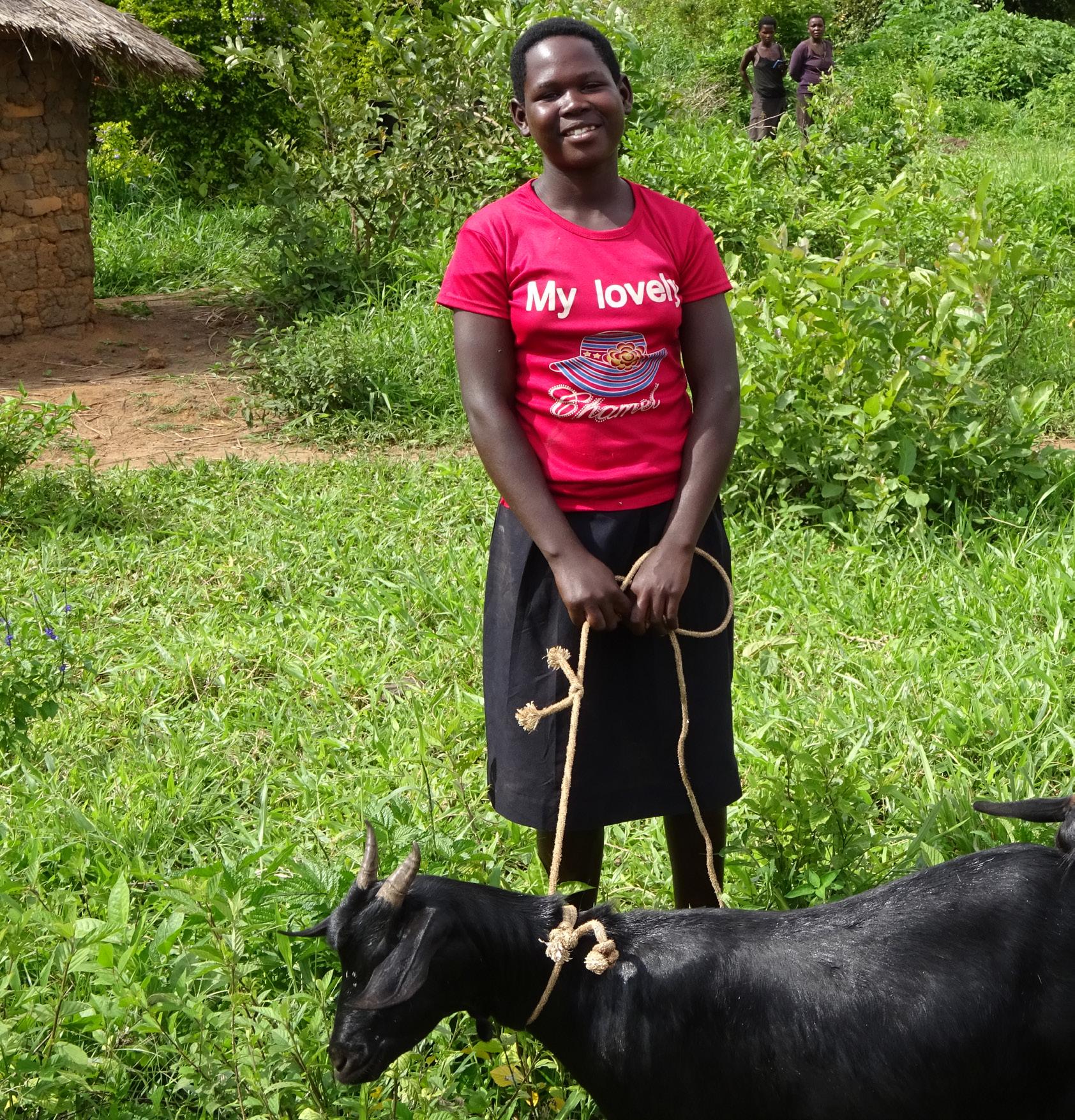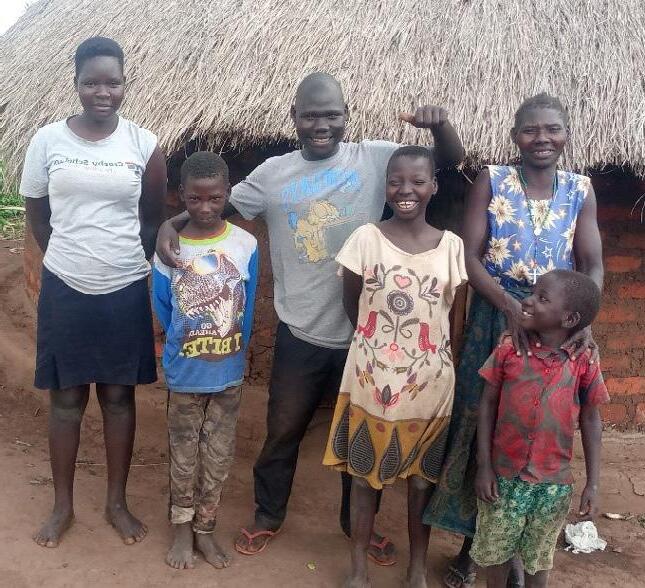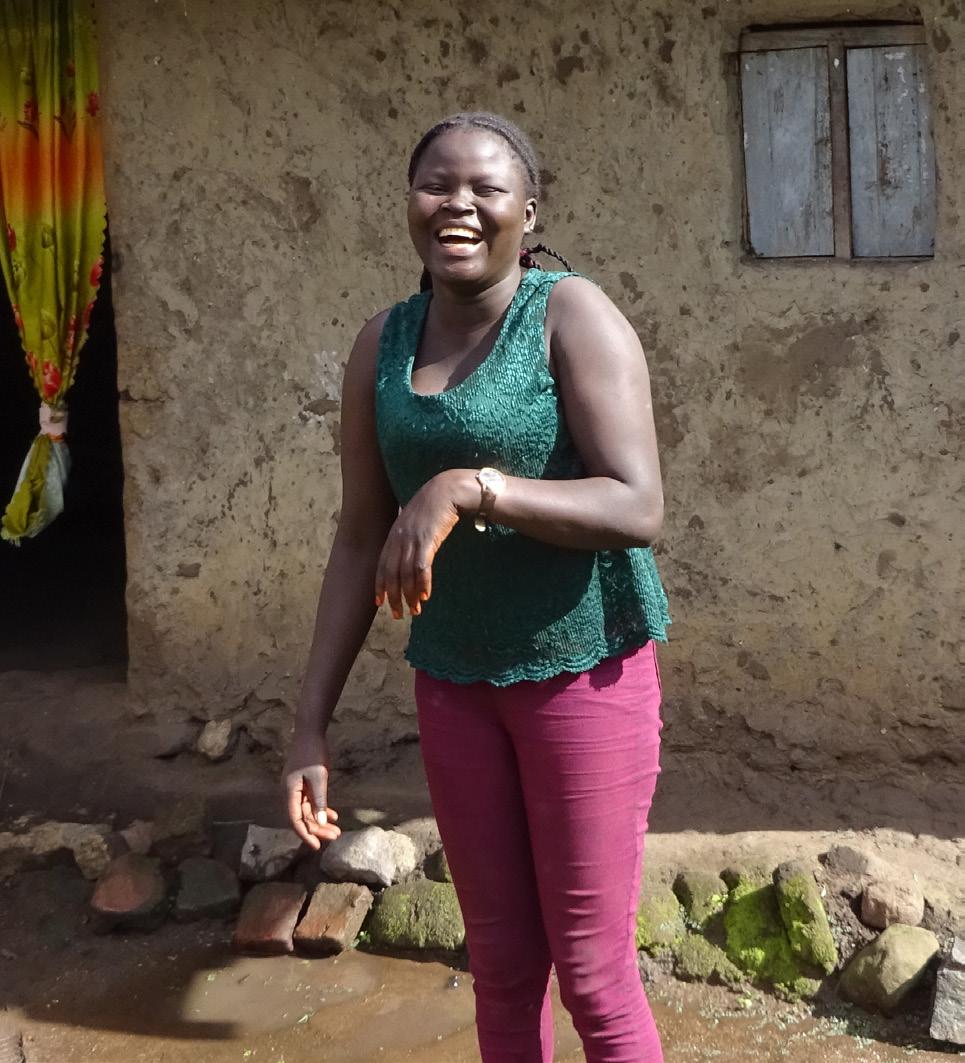2023 PROGRESS SUMMARY
CHILD HEADED HOUSEHOLDS
PROGRAMME


16
83% was the average age of the head of the household.
children living as part of 180 households supported through the programme.



16
83% was the average age of the head of the household.
children living as part of 180 households supported through the programme.
253% increase in average annual income for households who graduated in 2023.
100% of households introduced to a trained guardian and growing their own food.
Children who have been orphaned, abandoned or left to care for an elderly family member are acutely vulnerable to the effects of extreme poverty. For those without family members they can turn to, many live as part of a childheaded household.
interventions. Working directly with the head of the household, typically the eldest child, we help them to learn skills and to access support that can change their family’s future.


1,045 vulnerable children supported to date. of school-aged children back attending school fulltime, up from 51% when they joined the programme.
No matter their age, the eldest child bears the responsibility of being the sole provider and caregiver to their household. With no safety net it is a struggle to survive.
Since 2018, our Child Headed Households Programme in Malawi and Uganda has provided crucial
We teach them essential life skills, such as how to start earning an income through their own small business and how to develop economic and food security through agriculture and a livestock project. We also train guardians from their community to provide vital mentorship and protection.
Over the course of three years, the transformation seen among children living in such challenging situations is remarkable. From isolation and a severe lack of resources, they become beacons of hope in their communities.
“All my siblings are back in school and we are eating three meals a day. I am happy now and I am proud of myself.”
Sifra, 18, from Kabasindagizi, Uganda, who lives with her four younger siblings.




Meet Esther, 15, who lives with her younger sister Kemigiza in Kanyasi Village, western Uganda.
Having lost both parents at a young age, Esther takes care of Kemigiza and their home. Living in a grass-roofed house, they did not have adequate shelter and struggled to access food and support from wider family members or their community.
In April 2022, Esther was identified by our partner, RIDE Uganda, who quickly introduced her to the programme. Within just two years, she has made remarkable progress under the guidance of Agness, her new guardian.
Provided with initial stock, Esther started her business selling beans, maize flour and firewood from a stall set up near her house. Making a profit of 265,000 Shillings (£55) in her first year, she re-invested in the business and expanded her offering to sell a wider variety of fresh produce. This saw Esther almost quadruple her profits in her second year, earning over 1,000,000 Shillings (£200) through her growing business.
In that time, Esther’s food garden has gone from strength to strength. She now has a two-acre plot that produces maize, cassava, aubergines, rice and beans, giving her and Kemigiza dependable access to healthy and fresh food. She has also grown a significant surplus, making an incredible profit of 765,000 Shillings (£160) from selling food she did not need in the past year.
Esther was also given two goats through the programme. Within two years, her goats have produced three kids and she has also used the profits from her business to invest in a pig and several chickens. This has meant that she has developed a significant economic safety net as well as further improving her access to nutrition.
With the income from her business and food garden, both Esther and Kemigiza are regularly attending school as they can afford to pay for school fees, learning materials and uniforms. They have also completed the construction of a new home with a steel roof and a solar panel, giving them a safer living environment as well as access to electricity.
Since 2018, our Child Headed Households Programme has provided a platform for some of the most vulnerable children living in the communities we work with to develop vital, lifechanging skills.
We are excited for the future of this innovative and highly effective programme and will be introducing it with two more of our partners in Kenya and Tanzania in 2024.
Thank you so much to all the individuals, corporate partners, and trusts and foundations for your incredible support of WeSeeHope throughout the year.
Collaborating with people that share our passion for communityled, sustainable development is part of our DNA. If you are interested in supporting us, we would be delighted to hear from you at Hello@WeSeeHope.org.uk.
WESEEHOPE.ORG.UK